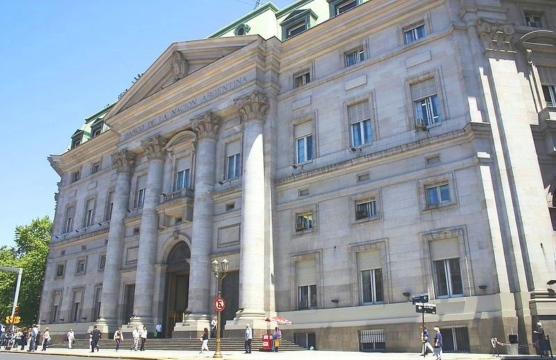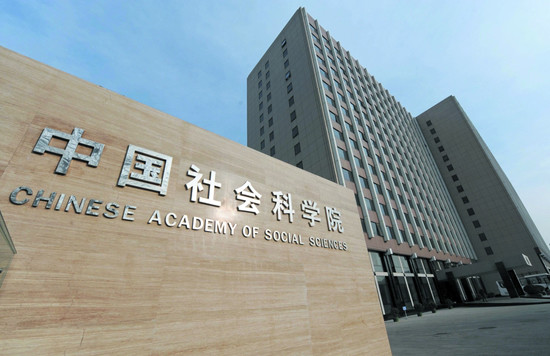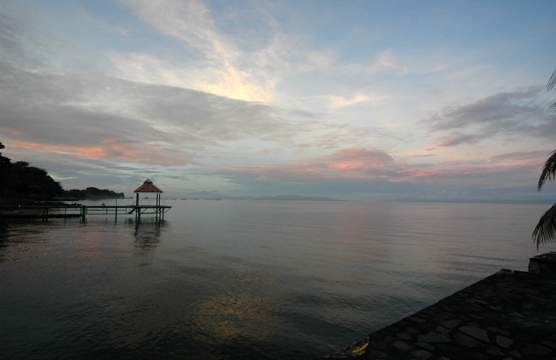
Will Default Dampen China-Argentina Ties?
The Fernández administration’s refusal to comply with a US court order to pay holdout hedge funds has once again landed Argentina in default.
Much like in other parts of the world, China’s so-called “mask diplomacy” has been on the rise in Latin America and the Caribbean (LAC) as governments in the region grapple with Covid-19 and its many social and economic consequences. Having tracked China’s offerings to the region in detail, we offer the following observations on the nature and extent of Chinese medical shipments over the past few months.
Among the earliest publicly documented examples of Covid-19-related assistance to the region was a donation of testing kits to Peru’s Ministry of Health by BGI, a Chinese life science and genomics company, and its associated charity, the Mammoth Foundation. Other early donations included Chinese telecommunications firm Huawei’s shipment of two thermal cameras to Argentina for use by the country’s customs agency and the company’s coordination with several Central American countries on the delivery of what have been described in LAC media as AI-enabled diagnostic services.
Of China’s over two hundred transactions in LAC over the past few months, the majority have taken the form of donations, although many also involve the sale of Chinese personal protective equipment (PPE) to governments and municipalities across the region. Mexico, for example, reportedly ordered PPE in the amount of $56 million from China, to be delivered across a number of flights. Peru has even contemplated buying from China the sort of prefabricated, 1,000-bed hospital facility that was built over the course of ten days in Wuhan, China. While Chinese donations to LAC continue unabated, the purchase of Chinese equipment has proven increasingly difficult for at least some countries in the region as shipments are sometimes diverted to higher bidders.
Since mid-March, China has sent shipments of medical equipment and/or offered technical assistance in combating Covid-19 to nearly every country in Latin America and the Caribbean.
Argentina has been a primary recipient of the many Chinese shipments to South America. According to Chinese embassy accounts, Argentina had received many tens of thousands of test kits, hundreds of thousands of medical facemasks, over 70,000 N95 masks, and many other types of PPE from China by mid-April. Although China has remained tight-lipped on the issue of debt restructuring in LAC, China’s ambassador to Argentina, Zou Xiaoli, also suggested in April that China is open to strengthening its financial policies with Argentina to “jointly confront Covid-related challenges.”
Recipients have also included a number of countries in the Caribbean, such as Antigua & Barbuda, Barbados, the Cayman Islands, Dominica, Grenada, and Jamaica. Among Caribbean nations, Cuba has been a primary recipient of medical aid from China, indicative of the special, historical bond between the two countries. Between March 20 and May 7, Cuba received many hundreds of thousands of facemasks, goggles, hazmat suits, and other supplies. China also reportedly donated ambulances to Cuba to help transport Covid-19 patients. Chinese media and Cuban officials strongly criticized US sanctions for delays in the arrival of Chinese shipments bound for Havana.
Beyond the delivery of aid to the island, Sino-Cuban medical cooperation has also come into focus as a result of the pandemic. An antiviral treatment, Interferon Alfa-2B, jointly produced by Cuban-Chinese joint venture Changheber, was among the medicines selected by the Chinese National Heath Commission to fight Covid-19 infections in China.
Chinese activity has also been reported in countries with diplomatic ties to Taiwan. In addition to Huawei’s early overtures in Guatemala, China also reportedly offered facemasks to Paraguay in late March, although Paraguay’s government looked to Taiwan instead for a shipment of medical supplies. Even so, a Paraguayan industry group known as the Agricultural Coordinator reportedly requested assistance from China in mid-April through a series of letters to China’s Ministry of Foreign Affairs and to the Chinese ambassador in Brazil.
Though likely coordinated to some degree by Chinese authorities, China’s assistance to LAC and other regions is coming from a wide range of actors. For instance, many of the donations have come not from the central government in Beijing, but from local governments across China. One prominent practice is for Chinese cities to send assistance to their sister cities in LAC. Sister city linkages are one of many examples of China’s expansive subnational diplomacy. In other cases, large cities in China have shipped equipment to Chinese embassies in LAC or to LAC governments for broader distribution. For example, the city of Chongqing in central China delivered 1,000 protective suits, 1,000 surgical suits, and 5,400 N95 masks to Ecuador in early April, according to China’s embassy there. Suzhou, which is located in China’s Jiangsu province, donated 20,000 facemasks and 200 hazmat suits to Panama’s government later that same month. And the city of Nanjing donated 30,000 facemasks to Colombia.
Chinese firms, state-owned and private, have also been active participants in China’s overseas outreach. Chinese telecommunications firm Huawei has played an especially prominent role thus far, having made donations to numerous countries in the region. The LAC region is an important potential market for the company’s telecommunications equipment and services, especially as 5G technologies are deployed throughout the region.
Other donor companies range from biotech firms such as BGI and Huiying Medical to construction companies, generally with operations in recipient nations. State Grid Brazil, which owns much of Brazil’s electricity grid, donated 264 hospital beds to Rio de Janeiro, for instance. And in Argentina, Chinese companies Gezhouba, China Railway, and Shandong Gold Group made donations to those Argentina provinces where they have existing operations—Santa Cruz, San Luis and San Juan. In Colombia alone, Chinese companies Didi, China Railway Construction Corporation (CRCC), Huawei, and ZTE have all made sizable donations. Chinese multinational Alibaba and founder Jack Ma’s private foundation have also been active throughout the region, including by donating five ventilators to Peru, 15,000 test kits and 30,000 face masks to Antigua & Barbuda, and respirators and other equipment to Argentina.
Some overseas Chinese groups have also been active in providing equipment to their respective communities. The Chinatown community in Bogota reportedly donated food to needy families, for example. Members of El Salvador’s Chinese community donated 3,000 facemasks and other supplies to the country’s national police, according to a Twitter post from the local Chinese embassy. The Chinese community in Venezuela also reportedly donated equipment to certain Venezuelan localities in mid-April. And Chinese media reported that alumni from Cuban universities donated over 58,000 facemasks to the Cuban people. While the vast majority of these initiatives are organized by communities themselves, some have received support from local Chinese missions, which then frequently highlight these efforts as part of their own media outreach.
Beyond coordinating donations and serving as an intermediary between buyers and sellers in China and LAC, China’s embassies have also worked to shape the narrative on China and Covid-19. In addition to cataloguing China’s assistance to the region, Chinese officials have also countered public commentary suggesting that the virus originated in China or that China’s domestic response to the virus was in any way deficient.
At times, China has taken an uncharacteristically aggressive approach to refuting what it considers to be misinformation about China and Covid-19. This included a very public diplomatic spat with Eduardo Bolsonaro, Brazilian Congress member and son of President Jair Bolsonaro, who blamed the China for the pandemic in a March tweet. Taking to Twitter itself, the Chinese embassy in Brasilia wondered whether the younger Bolsonaro had contracted a “mental virus” during a trip to the United States, noting the similarities between Eduardo Bolsonaro’s comments and those of some politicians in the US.
Chinese diplomats in Peru also traded barbs with Mario Vargas Llosa after the Nobel Prize winning writer published an opinion article in El Pais. In his article, Vargas Llosa suggested that the coronavirus had originated in China and noted that a free and democratic society would have handled the crisis differently. The Chinese Embassy in Lima responded on Chinese social media platform WeChat, reducing Vargas Llosa’s analysis to a “smear” campaign, which, according to the post, reflected “a lack of understanding and serious prejudice against China.”
Social media has indeed featured prominently not only in China’s rebuttals but also in China’s broader Covid-19 messaging. In fact, several Chinese embassies in the region including in Argentina, the Bahamas, Cuba, and Peru, set up Twitter accounts in the early months of the outbreak to communicate key messages directly to local publics.
Though difficult to measure, China’s Covid-19-related outreach has so far had a mixed effect on public perceptions of China in LAC. Many in the region are exceedingly grateful for Chinese assistance and have even publicly praised China for its extensive and timely donations. Mexican Foreign Minister Marcelo Ebrard tweeted “Thank you China!!!” following a late March delivery of masks, respirators, and test kits from the Alibaba Foundation, for example. Others have noted the efficiency with which China managed its own health and economic crises.
In other cases, China’s outreach has been a source of controversy. For example, Mexican officials noted that that much of the equipment that they are now buying back is equipment that Mexico originally sold to China, and that Mexico is buying the equipment back at a much higher price. Some in the region have also worried about the quality of Chinese equipment, after shipments of low-quality goods to Europe set off a number of related controversies. In Argentina, some diagnostic tests for Covid-19 were deemed ineffective by the country’s Ministry of Science.
China’s efforts to shape the narrative on China and Covid-19 have also met with some resistance from local populations. Anti-China sentiment is especially prominent in Brazil, encouraged by President Jair Bolsonaro’s own confrontational relationship with China. Following China’s heated exchanges with Brazilian politicians, anti-China banners appeared in Brasilia reading “China Lied, People Died,” and “China Virus,” according to the Financial Times. Despite growing Brazil-China tensions, Chinese companies and organizations have nevertheless continued to provide assistance to Brazil, including in the past few weeks, as Brazil’s Covid-19 crisis has intensified.
Margaret Myers is director of the Asia and Latin America program at the Inter-American Dialogue. Ricardo Barrios is senior analyst at RWR Advisory, a risk analysis firm. The authors are grateful to Wazim Mowla for his research assistance.
The Fernández administration’s refusal to comply with a US court order to pay holdout hedge funds has once again landed Argentina in default.
Who in China is advising on energy engagement with Latin America?
Will protesters succeed in halting the canal’s construction?

